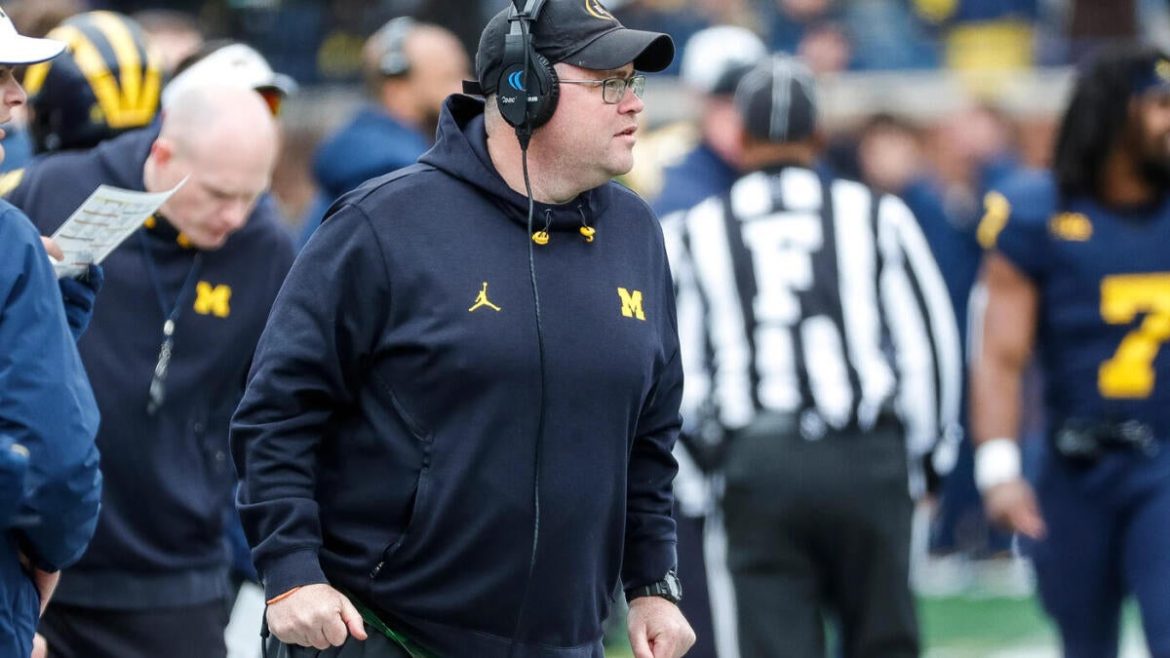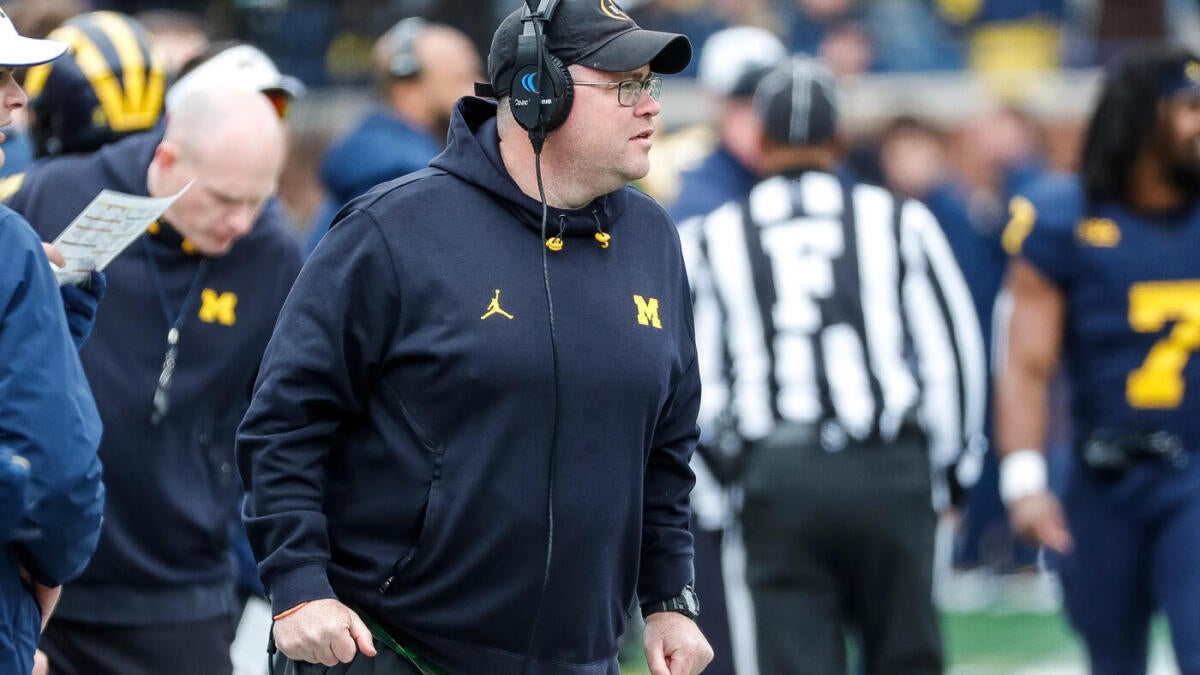Michigan Football Staff Restructuring: The Rise of Steve Casula and Contract Extensions
The University of Michigan football program is strategically reinforcing its coaching staff ahead of the 2025 season. Central to this development is the elevation of Steve Casula, the tight ends coach, to co-offensive coordinator—a move that not only recognizes his contributions but also signals the program’s commitment to stability and growth within its coaching ranks. Alongside Casula’s promotion, Michigan has extended contracts for six key assistant coaches, collectively fortifying their coaching foundation.
—
Steve Casula’s Promotion: From Tight Ends Coach to Co-Offensive Coordinator
Steve Casula’s journey with Michigan football reflects a blend of familiarity and ambition. Initially serving as an offensive analyst for the Wolverines from 2019 to 2021, Casula departed to become the offensive coordinator and quarterbacks coach at the University of Massachusetts (UMass) during the 2022 and 2023 seasons. Returning to Michigan in early 2024 as the tight ends coach, he quickly emerged as a key figure in Sherrone Moore’s staff.
Casula’s promotion to co-offensive coordinator comes after a notable stint as interim offensive coordinator and play-caller during the December 31st ReliaQuest Bowl victory against Alabama. His deep involvement with Michigan’s offensive schemes—maintaining continuity and a “Michigan offense” identity—underscores why the leadership entrusted him with increased responsibilities.
The new position adds co-offensive coordinator to Casula’s responsibilities while accompanying a two-year contract extension signed on April 11, 2024. His annual salary rises by 25 percent to $500,000, reflecting both his value and Michigan’s intent to retain top coaching talent in a competitive collegiate landscape.
—
The Strategic Rationale Behind Casula’s Elevated Role
Casula’s promotion is a signal of Michigan’s commitment to offensive coherence and leadership development. By elevating a coach with previous offensive coordinator experience at the collegiate level and intimate knowledge of Michigan’s system, the Wolverines seek to blend innovation with continuity—ensuring that offensive adjustments blend seamlessly with tradition.
Moreover, Casula’s role as tight ends coach remains integral. His dual role enhances on-field coordination, particularly for position groups critical to modern offensive execution, enabling synergy between scheme design and player development.
—
Contract Extensions for Key Assistants: Stability and Retention
Together with Casula’s promotion, Michigan announced contract extensions for six assistant coaches, each securing one-year deals that extend their tenure through the 2026 season. These moves emphasize staff continuity—a crucial element for program success, player development, and recruiting impact.
The assistant coaches receiving contract extensions include:
– Tony Alford (Running Backs Coach and Run Game Coordinator): Secured a new three-year contract increasing his salary from $850,000 to $900,000 for 2025. Alford’s experience and expertise in running backs and run game strategy are pivotal to Michigan’s offensive balance.
– Lou Esposito (Defensive Line Coach): Key defensive position coach maintaining his role.
– Ron Bellamy (Wide Receivers Coach): Continued guidance for Michigan’s aerial attack.
– LaMar Morgan (Defensive Backs Coach): Essential for secondary defense development.
– Grant Newsome (Offensive Line Coach): Anchors the offensive front with technical coaching and leadership.
– Sherrone Moore (Head Coach): While not specifically mentioned as extended, Moore’s oversight encompasses this coaching staff restructuring.
These contract renewals confirm Michigan’s approach to reward and keep their assistant coaches, fostering a culture of loyalty and sustained excellence.
—
Impact on Michigan’s Coaching Culture and Team Future
The combination of Casula’s elevation and extension of other key assistants reflects a broader philosophy of measured, strategic growth. It:
– Encourages Internal Promotion: Highlighting Michigan’s willingness to develop and elevate coaching talent from within, which enhances staff morale and continuity.
– Ensures System Stability: Preserving offensive and defensive schemes with largely consistent personnel avoids disruption and facilitates smoother player adaptation.
– Signals Competitive Ambitions: Offering raises and multi-year contracts positions Michigan to remain competitive against peer programs aggressively recruiting coaching talent.
– Supports Recruiting and Player Development: Stable coaching staffs improve recruiting messages, allowing players to trust in consistent guidance and development pathways.
—
Background and Coaching Trajectory of Steve Casula
Understanding Casula requires appreciating his coaching roots and diverse experiences. Beginning as a graduate assistant at Western Michigan and eventually leading offenses at Davenport College and UMass, Casula built a robust repertoire in offensive strategy. His tenure as offensive analyst at Michigan coincided with a Big Ten Championship and the program’s first College Football Playoff appearance in 2021, marking foundational periods for Michigan’s recent successes.
Michigan’s decision to hire him as tight ends coach in February 2024 and then rapidly promote him signals strong confidence in his offensive acumen and leadership potential.
—
Conclusion: Setting the Stage for a Brighter 2025 Season
Michigan’s proactive staff decisions—most notably the promotion of Steve Casula to co-offensive coordinator coupled with contract extensions for multiple assistants—are poised to create a consistent, innovative, and committed coaching environment. Casula’s unique blend of institutional knowledge and offensive leadership, complemented by the experienced assistants’ continuity, forms a backbone capable of guiding Michigan football to sustained success.
As the Wolverines prepare for the 2025 campaign, this coaching stability positions them well to compete at high levels, nurture player talent, and maintain their reputation as a premier college football program. The strategic foresight embedded in these moves not only rewards past contributions but also steers Michigan confidently toward future achievements on and off the field.





